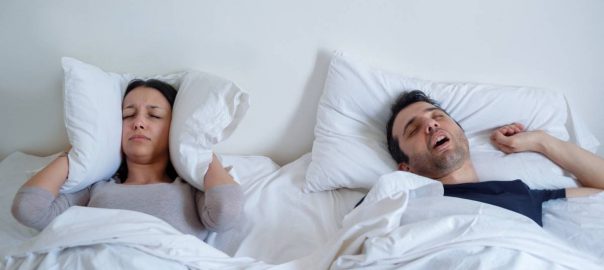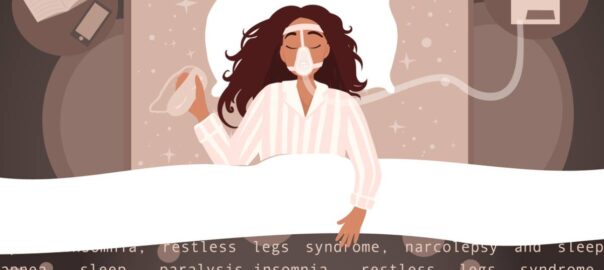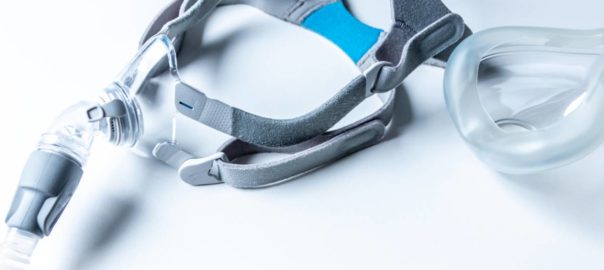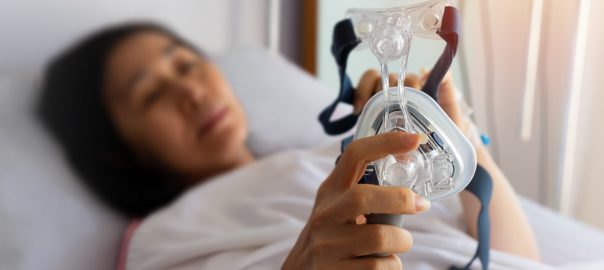Obstructive sleep apnea is a common and potentially dangerous condition caused by the throat muscles blocking the flow of air to the lungs during sleep. In this article, we discuss the signs of obstructive sleep apnea and why you should seek professional sleep apnea treatment.
Signs You Have Obstructive Sleep Apnea
Below, we list some of the most common symptoms of obstructive sleep apnea. However, remember that only your doctor can give you an accurate diagnosis after a comprehensive medical exam.
- Snoring loudly
- Periods of not breathing during sleep
- Gasping for air or choking during sleep
- Dryness in the mouth in the morning
- Having headaches in the morning
- Difficulties falling or staying asleep
- Feeling sleepy and tired during the day
- Difficulty concentrating during the day
- Feeling irritable
Complications of Sleep Apnea
If you experience any of the symptoms listed above, we recommend seeking professional medical help as soon as possible. This sleep disorder can cause life-threatening consequences, as it increases pressure in the heart and blood vessels. As a result, heart damage and heart failure might occur. Other complications of sleep apnea include:
- Type 2 diabetes due to the increased risk of developing insulin resistance
- Metabolic syndrome, which includes high blood pressure, sugar, and cholesterol levels
- Liver issues because sleep apnea might increase the risk of nonalcoholic fatty liver disease
- Sleep deprivation, fatigue during the day, and trouble concentrating
- Potential complications during surgeries and sedation
What Causes Obstructive Sleep Apnea
In the back of our throats, muscles support the palate, the uvula, the tongue, the tonsils, and the walls of the throat. When these muscles relax and can no longer provide necessary support, the airway in the throat becomes too narrow for the air to pass freely. In some cases, the airway can become blocked entirely. This condition causes snoring, choking, and constant waking for up to 30 times an hour during the night.
Risk Factors for Obstructive Sleep Apnea
Sleep apnea can occur regardless of age or gender. However, there are several risk factors for this condition:
- Excessive weight or obesity, which can cause fat deposits to accumulate near the upper airway, obstructing breathing at night
- Having a naturally thicker neck structure and narrow airways
- Enlarged adenoids or tonsils that block airways (an often cause of sleep apnea in children)
- Advanced age
- Being male (according to statistics, males have sleep apnea 2 to 3 times more often than women)
- Family history of sleep apnea
- Smoking (increases the inflammation and fluid retention in the throat and airway)
- Consumption of alcohol or sedative drugs that increase muscle relaxation, including muscles in the throat
- Trouble breathing through the nose due to anatomical structure or chronic nasal congestion
- Medical conditions, such as high blood pressure, congestive heart failure, prior stroke, diabetes type 2, hormonal issues, asthma, polycystic ovary syndrome, and others
Obstructive Sleep Apnea Treatment Methods
In general, there are two ways to treat sleep apnea: surgical and nonsurgical. Surgical procedures include:
- Removal of some of the tissue from the top of the throat and the back of the mouth
- Tonsils or adenoid removal
- Maxillomandibular advancement (jaw surgery)—repositioning the upper and lower parts of the jaw by moving them forward and thus enlarging the area behind the tongue and soft palate
- Surgical implantation of an impulse generator device under the skin in the upper chest for upper airway stimulation
- Tracheostomy—surgically creating an opening in the neck and inserting a tube for air to pass to and from the lungs, avoiding the blocked area in the throat (this method is usually employed if other methods have failed and sleep apnea condition is life-threatening)
- Nasal surgeries to improve the structure of the nose, thus allowing the air to pass freely through the nose (in cases when nasal structure or congestion issues cause sleep apnea)
The most common nonsurgical options for obstructive sleep apnea treatment include:
- Using continuous positive airway pressure (CPAP) masks and headgear. With this method of treatment, a machine delivers the air through a device that is placed in or over your nose or mouth while you sleep. CPAP devices are a common and effective method of treating sleep apnea.
- Wearing a mouthpiece at night that keeps the airway in the throat open during sleep. Such devices can reduce the symptoms of sleep apnea by bringing the lower jaw forward or holding the tongue in a different position.
Make an Appointment Today
Do not postpone seeing an obstructive sleep apnea specialist in Los Angeles if you experience breathing disruptions and loud snoring at night or suffer from other sleep apnea symptoms during the day. We look forward to welcoming you to the Samaritan Dental office.











 Yelp
Yelp I have never had a better dental experience prior to my visit with Dr. Zabolian. It was pain free for the first time ever, the staff was friendly, accommodating to my schedule, there were no problems with my insurance claims... I am so happy I have found a dentist (after all these years) I feel so comfortable going to and also taking my family.
I have never had a better dental experience prior to my visit with Dr. Zabolian. It was pain free for the first time ever, the staff was friendly, accommodating to my schedule, there were no problems with my insurance claims... I am so happy I have found a dentist (after all these years) I feel so comfortable going to and also taking my family. 






